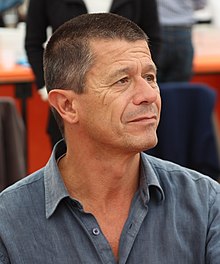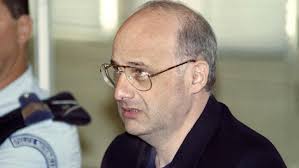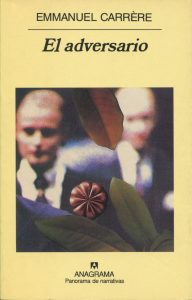A mathematical formula is undecidable with respect to a given set of axioms when neither the formula nor its negation can be proved out of the set of axioms.

The last place one expects to find mathematical indecibility is in French writer Emmanuel Carrère’s novel The Adversary. With its publication in 2000, Carrère changed his novelistic register. In the wake of the literary non-fiction of Truman Capote’s In Cold Blood, Carrère tells in The Adversary the true story of Jean-Claude Romand, who on 9 January 1993 murdered his wife, children and parents, and then tried to commit suicide. The murdered always thought that Romand was a doctor, that he worked for the World Health Organisation in Geneva and that he was an excellent investor, but the subsequent investigation revealed all this to be fictitious and led Romand to murder his immediate family in the face of the derision of being uncovered. Carrère went on to explore the biographical and autobiographical novel with titles such as A Russian Novel (2008), Of Other People’s Lives (2011), Limonov (2012), The Kingdom (2015) and Yoga (2021). A tormented author, psychically unstable, with periods of depression during which he underwent electroshock treatment, Carrère was awarded this year’s Princess of Asturias Award for Literature.

Jean-Claude Romand, the central character in The Adversary, survived his suicide attempt. Years after his crimes, he had a mystical experience in prison, brought about by the visits he received from a certain Bernard. This Bernard was part of a Catholic movement called the Intercessors, who visited prisoners and cradled them with angelic discourses on the Lord’s infinite mercy and the wonders He could work in their souls.
These intercessors also take turns to ensure an unbroken chain of prayer, their purpose being that at any one time there is at least one intercessor praying. Each undertakes to do so at a specific date and time, and Jean-Claude Romand, the terrible murderer of his wife, children and parents, was recruited by his friend Bernard to pray, and he showed great zeal by choosing unprompted times, for example, from two to four o’clock in the morning. Carrère tells us that Bernard asked Romand to write a testimony about this religious experience.

In the final paragraph of The Adversary, Carrère tells how he ordered the folders containing the criminal record of the murderer Jean-Claude Romand, including the statement that Bernard had managed to get him to write. And it is here that, in order to close this terrifying true story, Carrère needs to appeal to the power of the mathematical undecidable to make us understand the incomprehensibility of this testimony:
I unloaded the boot and, when I arranged […] the cardboard boxes of the case file in a shelf in my studio, I realised that I would never open them again. The testimony written at Bernard’s request was still open, however, on my desk. With its Catholic phrasing, this testimony did indeed seem mysterious to me. In the mathematical sense: undecidable.

Leave a Reply